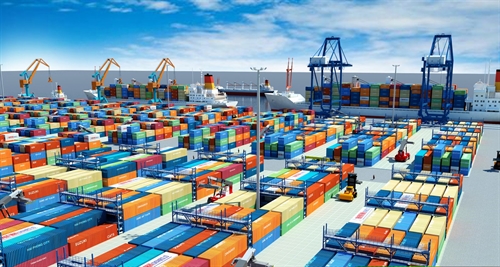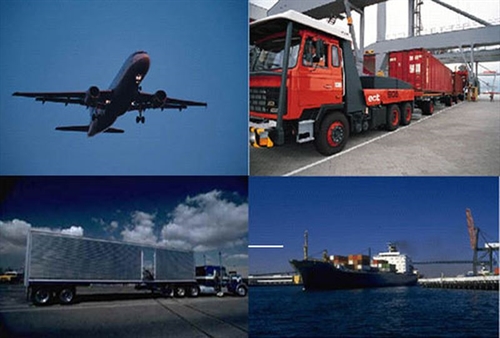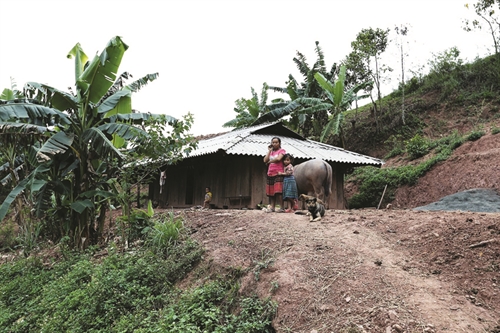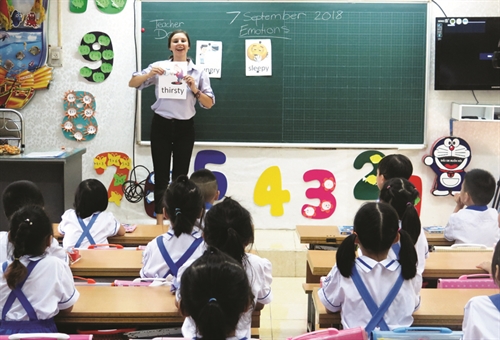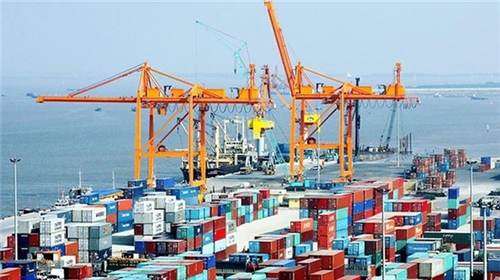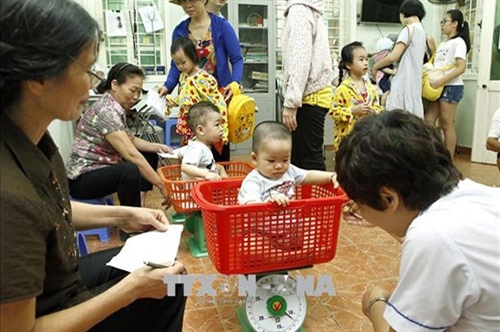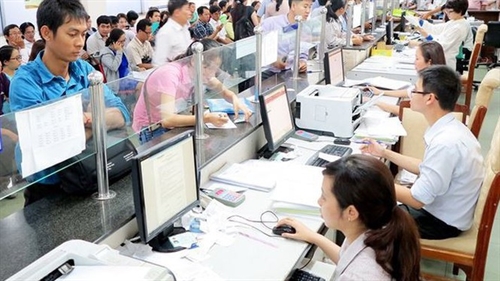By 2025, Vietnam will be among the regional countries with fastest tourism development with total revenues from the hospitality sector reaching USD 45 billion, of which exports through tourism will be USD 27 billion.
Under Decision 1685 signed by the premier on December 5, the tourism sector will be restructured to optimize the country’s advantages in products, markets and resources, improve the economic, social and environmental efficiency, raise the people’s living standards, and promote the country’s images, friendly people and unique cultural values.
For the next six years, it is expected that the tourism sector will contribute at least 10 percent of GDP, create 6 million jobs, including 2 million direct jobs, help raise the percentage of trained tourism employees to 70 percent, and welcome around 32 million international tourists and accommodate 130 million domestic holiday makers.
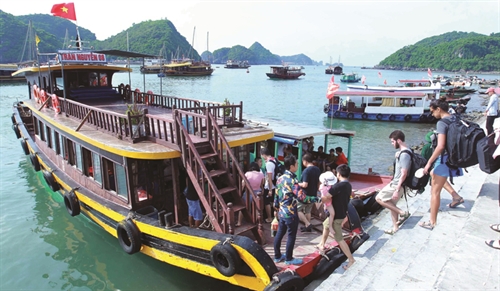 |
| Domestic and foreign tourists take vacation trips to Cat Ba island, Hai Phong__Photo: An Dang/VNA |
Distinctive tourism products will be diversified and imbued with Vietnamese cultural identity and prestigious brand names, especially in areas with great advantages for tourism development.
Besides, “smart” tourism models will be widely applied, thereby promoting the national tourism’s competitiveness.
In order to achieve the above targets, the sector will have to focus on attracting tourists from the developed countries and luxurious holiday makers and developing different types of tourism for which Vietnam has comparative advantages such as community-based tourism; MICE tourism; golf tourism and food tourism. Priority will also be given to high value-added tourism products and experience-enhanced tourism.
It is also planned to continue developing nature- and culture-based tourism products in localities with tourism development potential together with such new types as creative tourism, shopping tourism and community-based tourism.
Another task set forth in the Decision is to restructure tourism companies to facilitate the development of foreign and domestic large-scale companies with famous brands to lead the country’s tourism toward providing more high-class and high-value products and services.
Small- and medium-sized companies, households, and startups are strongly encouraged to enter the tourism market and unite to build a fairly competitive environment for businesses from all sectors.
Previously, on November 30, the Prime Minister announced the scheme on application of information technology in the tourism sector, with orientations toward 2025, under Decision 1671/QD-TTg.
Under this decision, by 2020, all data on tour guides, international travel agents, and tourist accommodation establishments managed by state tourism administrations will be digitized.
In the meantime, it is planned to develop a digital information system on tourist attractions, tourist service providers and arrived tourists, and develop mobile apps to provide tourists with information about tourism destinations and products which can be automatically translated into common foreign languages.
The system connecting state tourism administrations at central and local levels and tourism companies will also be formed.
By 2025, the smart tourism ecosystem will be developed in a synchronous manner associated with the digitized Vietnamese knowledge system and smart urban models. The application of artificial intelligence, travel chatbot and other advanced technologies serving tourists, tourism companies and state tourism administrations will be intensified, thus helping Vietnam become one of the top four tourism countries in the Southeast Asian region.
One of the major tasks set forth in the Decision is promoting technology applications to help tourists prepare for and enjoy their journeys.
In light of this, the Vietnamese tourism information portal will be upgraded to provide more useful information about tourism destinations, products and services and enable apps to help foreign tourists make their travel plans and bookings and online payments for services designed to suit personal needs.
Tourism advertising campaigns via social networks will be launched, focusing on specific target markets.- (VLLF)

